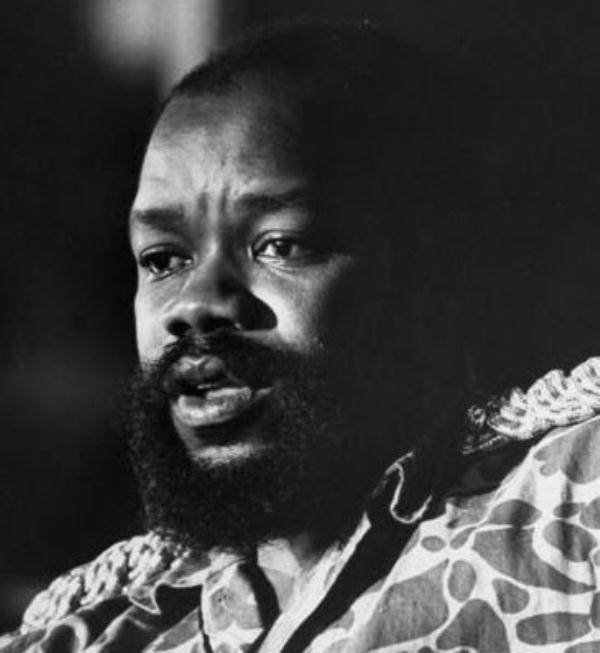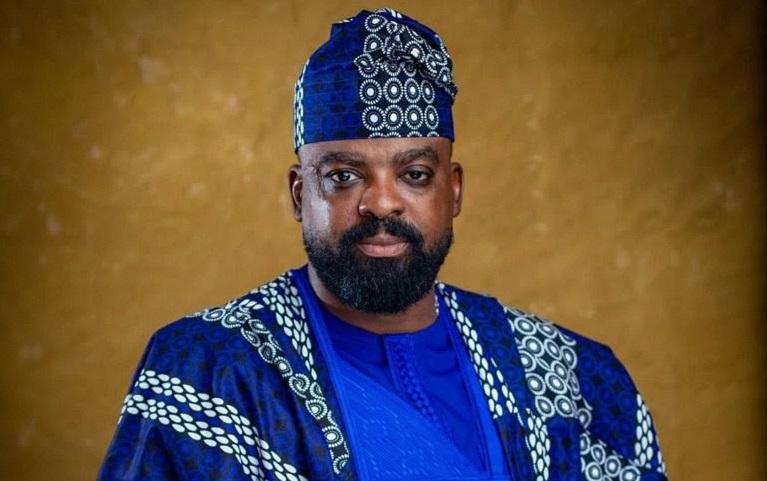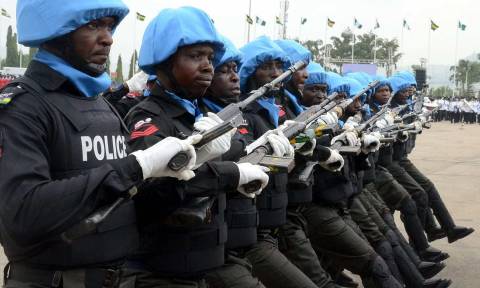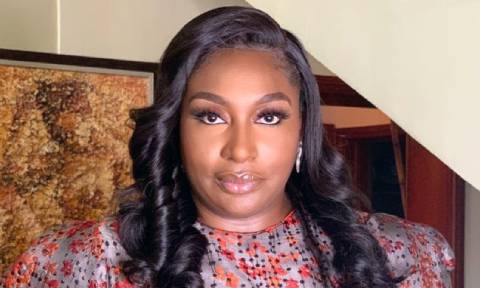
Dan Alo, the man who discovered and nurtured Dapo Olanipekun, aka Da Grin, says all he knows about the late rapper in this interview
About the late Da Grin
My friends, Yinka Ogundeko, Tunji Ademoye and Femi Adeojo, introduced him to me after they observed that he was talented. They wanted his talents to be developed. They were with me when I returned from the United Kingdom in 2000. We wanted to explore the missing link in Nigerian entertainment. What we noticed was that the Nigerian music scene lacked the kind of production that existed abroad. We felt we could do something on our own and infuse it with our local content. We set up a music studio, an audio digital studio, in Magodo, Lagos and we tried as much as possible to make it work. Then somebody said he met a small boy in the street who used to entertain people with rap, anecdotes, etc. I asked him to invite the boy to our studio. The boy’s rhymes were so funny that he made me laugh for the first 15 minutes. In his free-flowing style, he talked about pieces of lace, pinafore, and so on; the way he chose his words left me so impressed that a young man of his age, he was about 17 then, could be this eloquent. That was how we called him in. He told us that he had left home and was squatting with his friends. I told him it was a not a good thing to do and I asked him
to move in with me. He started living with me and that was it. He was a very quiet and respectful boy from a polygamous home. His mother was the second wife. He was taught humility right from childhood. Sometimes, he prostrated to greet his age mates. On his own, he would go into my bedroom, pick up my clothes, wash and iron them. Those times he would tell me that a future star is ironing my cloth and I should give him something. He would make you laugh. He was a very funny and loveable person. This is the way I can describe him.
His personal struggles
Da Grin grew up in Meiran, a suburb of Lagos. The place is densely populated and different kinds of people live there. He was always on the street, fending for himself. He was not a violent boy; he only adapted the everyday street lingo to his music. It became commercially valuable for him. I really don’t know much about what he did on the street. It is his parentage that I fault. I did not see the evidence of parental care in his life. At such a young age, he actually lived with me for almost five years. In all that time, his parents did not come around to look for him. The only people that always called to see him were his younger sister, Bukky, and his girlfriend at the time, Chichi. She used to give him money and buy clothes for him. Also, he had a friend named, Hope and another one called Whitie. They were always hanging around him, going to places, and enjoying themselves together. Those ones were into music, though they were not as successful as he was.
How he became brand name
Dapo was a very funny boy. He was always laughing and teasing people, jesting. I found out that any time I talked to him he always laughed and his name was Dapo. We were recording his first album when it occurred to me that he did not have a brand name. I asked what name he would like to be called. He said, ‘I want to be called Lyrical Were.’ I asked him what that meant and he said it meant he was crazy with lyrics. I told him the name would not work. I told him it did not sound like a good brand name. We sat down; me, Yinka that we refer to as the chairman; Tunji and Femi. We said since his name was Dapo and he laughed a lot, we would take ‘Da’ from his name and since he laughed, grinned a lot, we told him he would be called Da Grin. He said the name was good. That was how he agreed. At first, he said the name sounded like an English name and he was rapping in Yoruba. He asked how we could reconcile both facts. I said we should give it a try and it might work. That is how everybody started calling him Da Grin. Before we knew I, he had become very popular.
From street life to stardom
Initially when he started, Da Grin knew where he was going and he knew that his brand was different from what anyone else could do. Nobody before him did hardcore rap in Yoruba. The other person we have is Lord of Ajasa. But he was totally different. There was a clear difference between what Da Grin was doing and what Lord of Ajasa was doing at that time. I told them that he had come with hardc ore rap in Yoruba language. At that time, many people did not appreciate him. We took his work to our friends in the media. Some told us it would not move in the market. Then we organised a show worth N1.8m. and invited Kola Ogunkoya the Gbedu master from Washington DC in the USA. We held the show in Tarzan in Victoria Island. The invited performers were the ones encouraging us not to give up. They said this was something we would not regret in the end. We were also being positive about what we were doing. We knew it was not embraced at that time, but we knew that with time it would be accepted. A journalist even told me to advise him to rap in English. I told him it was not our focus. Our focus was to do something with our local content and make success out of it. We started moving gradually. We gave Da Grin the necessary push, we were not relenting and he did not do so, too. At a point, he felt we were not doing anything for him. But we made him realise it was not the case. We made him understand that if you decided to change people from what they knew, it would not happen in a day. Transformation takes place stage by stage. I kept explaining to him. Sometimes we would both sleep in the studio. Sometimes he would be dejected. I would take him out to cheer him up. There was a time he said he wanted to live on his own. I told the chairman, Yinka Ogundeko. He said okay and we rented a self-contained apartment for him. It cost us N500,000. That was the mistake we made. Right from that time, he gained undue independence. He was very free. He moved around without the necessary checks and balances. I have always known that he would not be able to manage himself.
There was a day I took a nap and dropped my car keys. The nap was just for an hour. He took the key, attempted to drive the car and was involved in an accident within Magodo Estate. When he returned, he told me that while I was asleep he took my car and somebody bashed him. I was shocked that somebody bashed him. I asked him, ‘Do you know how to drive? Do you have a driver’s licence? Are you up to driving age one?’ I treated him like my own son. I gave him the necessary education. At a point, his tenses were bad; he could not string them together. We had to organise English language classes for him. We would make him talk, listen to him and correct him. I asked him what he wanted to do after secondary school. He said he wanted to work in computer village. I had to register him at the Lagos City Computer College. He attended classes for a while and told me that he wasn’t going again. He said he was not interested and people were disturbing him. When I asked him how, he just laughed in his usual manner. He joked about everything, no matter how serious the issue. I just left him because I knew we would manage him well. The mistake we made was to have allowed him to live alone. I had left Lagos at the time. The guy that was supposed to manage him in my absence was not up to the task. When Da Grin met Edlyne Records, he fought with the guy that took him there; so that the latter would not tell us what he was up to. His contract with the records company was very exploitative. I knew it and I did not need to be told. The real issues were the freedom and the car that the records company bought for him. It was in the same car that he met his death. It wasn’t as if we lacked the money to buy him a car. In fact, he bought a car. I paid him about N250,000 when Alaba people started bringing money. He went and organised with a mechanic and bought a Volkswagen Golf car. He would park the car about three streets away. People began to congratulate me on my boy’s car. I had to persuade him to bring the car and right in his presence, I sold it and gave him the money. I told him he could use the money for something better and if he wanted to go out, there were three cars and a driver at his disposal. I knew his kind of person could not manage himself. There is a big gulf between talent and success. You have to nurture talent to be successful. Talent does automatically relate to success. All of that I was able to see in him. We considered his character and background, when we decided not to let him out of our sight. The only time he went out of the radar was when I travelled out of Lagos and by the time I got back he had left. His record made waves for about eight months. Within eight months, he made waves and he died.
The film on his life and times
It is only in Nigeria that people talk about what they don’t know. There is no way you would talk about Da Grin and you would not talk about people like myself; Yinka Ogundeko, the chairman; Femi Adeojo; his best friend Hope; Whitie; his girlfriend Chichi, his siter, Bukky. We were close to him. How would somebody want to make a film on Da Grin and not do a research on who the guy was? How he came to be popular, how he lived his life and what eventually happened. I mean Da Grin did not just die, there are two things he died of. He died of lack of management. He was not properly managed. For instance, if he had been given a chauffeur he wouldn’t have died that night. Somebody else would have been saddled with the responsibility of driving him. He had all the time in the world to party and do what he wanted. Somebody told me that already Da Grin was taking skunk and he would finish two bottles of Hennessey. That liquor contains about 45 per cent alcohol; two bottles makes it 90 per cent. I can’t imagine that somebody would sit behind the wheels of a car to drive after tucking in so much alcohol. Is that what they call management or success? They had gold in their hands and because they did not know he was gold, they threw him away. Those of us that dug deep to bring out that gold and refined it would not have treated that material that way. That is the truth. It was not as if we could afford a car, we could buy him fleets of cars, but we had to keep him under our radar so that anything he does would fall in line with his path to success. We were planning a tour of the UK for him. Already, we had been invited to some places in the UK, but we did not allow him to know. This is because if he knew, he would blow it out of proportion and his expectations would be higher than what was involved. So, we kept it to ourselves. The first thing we wanted to do was help him gain acceptance from the public. We wanted everybody to accept him and it happened. We did a world press conference for him. We took him round popular eateries to sign autographs for fans. Da Grin is my intellectual property. Somebody infringed on it, yet I cannot sue him. I have checked the laws of this country, they do not protect what you do. You can submit your proposal and somebody else will go and implement it. If you decide to go to court, I do not think you will obtain good judgement on such matters. I have checked the laws; the maximum sentence anyone can get for copyright infringement is nine months or thereabout. That is why piracy is striving in Nigeria. Who gets arrested? Da Grins signed a contract with us for all the songs that he produced in Edlyne Records. He had no right to reproduce them under another records label. That is why people like us decided to keep quiet and see how events unfold.
Controversies surrounding his death
It is not true that Da Grin, who was born in 1988, was involved any ritual. Assuming he did, he would not have been dead now. The Da Grin I knew did not do anything like that. What I know is that the boy was not aware of the stage he had attained in life at the time. He was poorly managed and was surrounded by bad friends.
His love life
The only girl I knew was very close to Da Grin was Chichi. That girl was very good to him. They were still dating even after he became famous. She used to work in Computer Village. This girl would prepare his meals, wash his clothes, and stay with him in the studio. She did her best to win and groom Da Grin. He had good taste. If he went for shopping he would not touch cheap clothes, but go for designers. When Ipod Mp3 player first came into the Nigerian market, he asked me to get it for him. It cost about N60,000. I told him I didn’t have that kind of money. The next thing he did was go to the Computer Village and when he got back, he showed me his new ipod. When I asked where he got it from, he said Chichi bought it for him. I know he was very close to the girl and she did well to him. Wherever she is God will bless her. He did not leave any child behind, contrary to speculations.



















